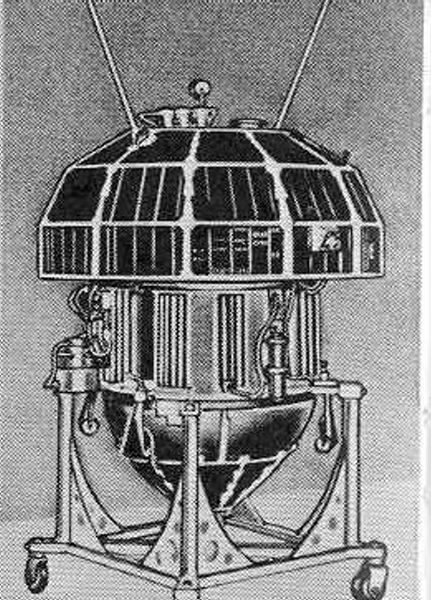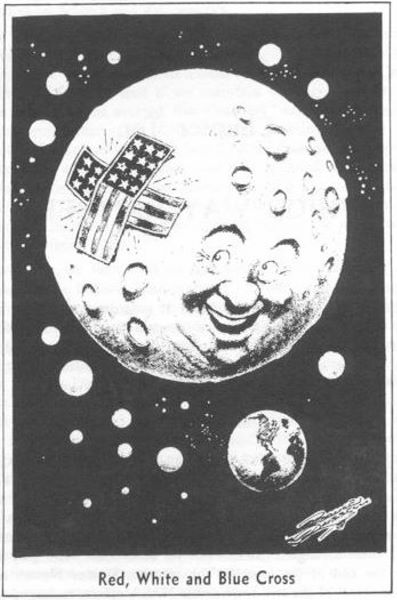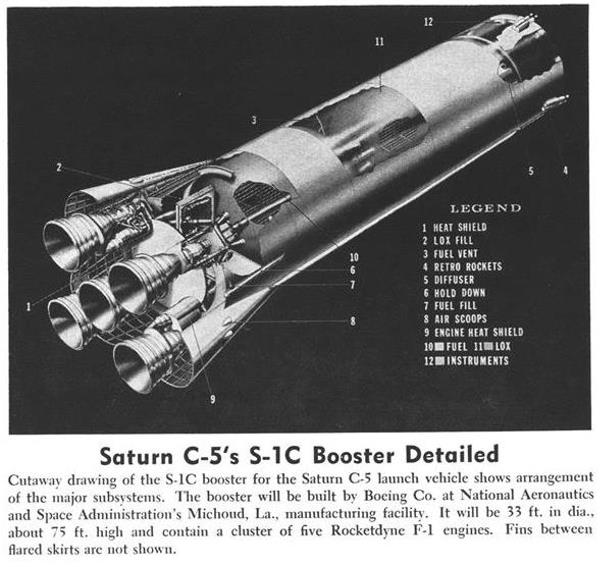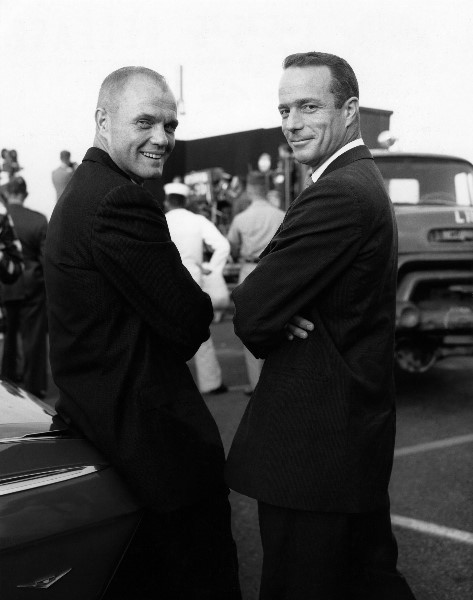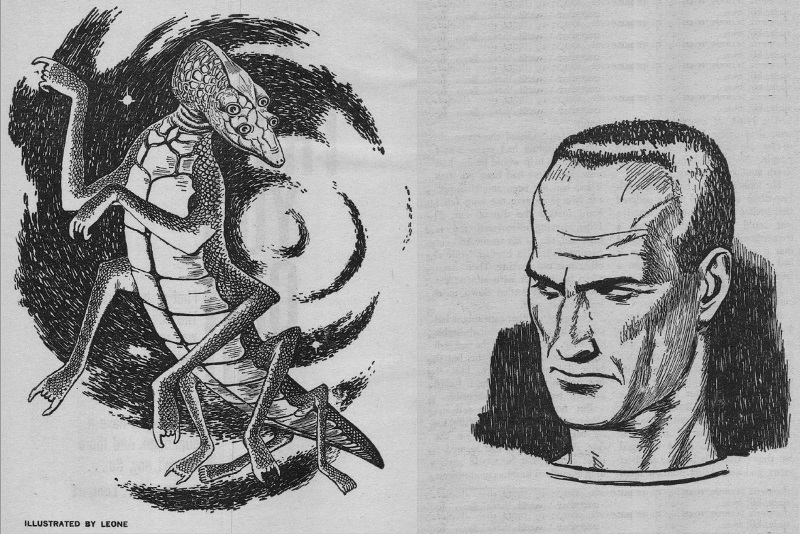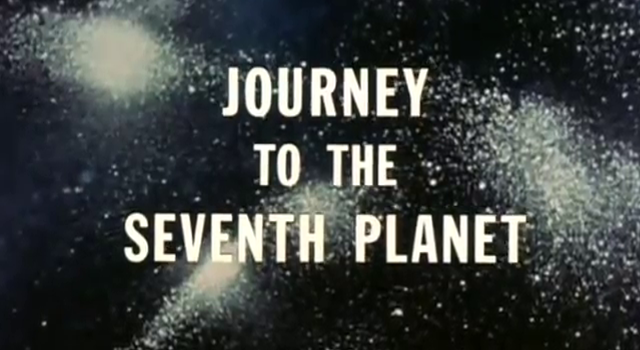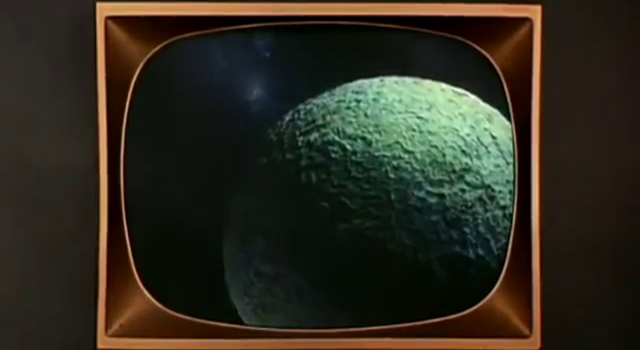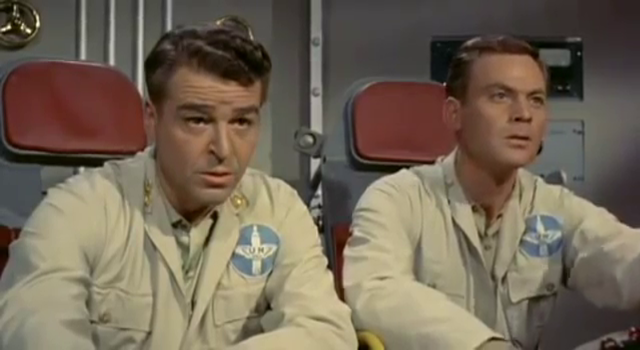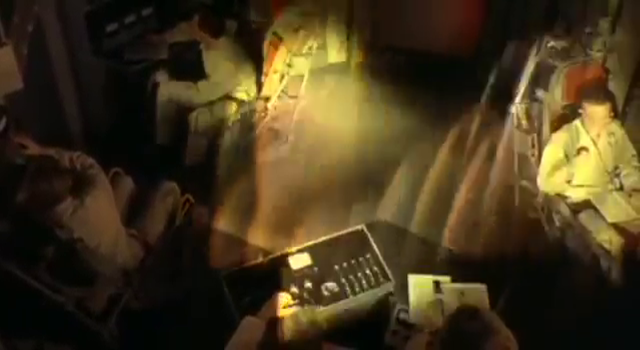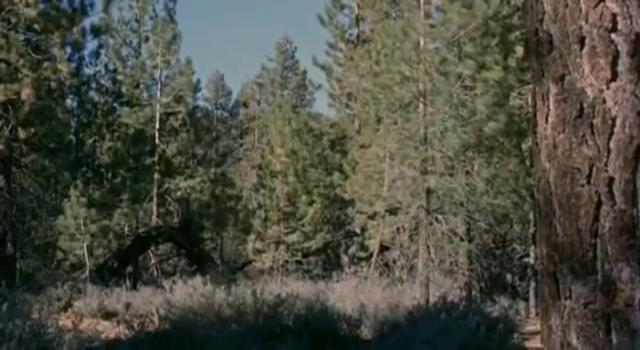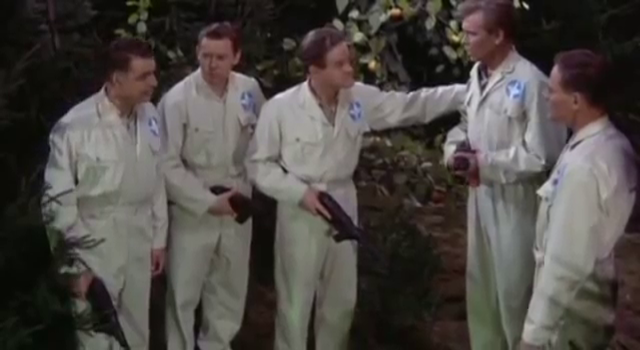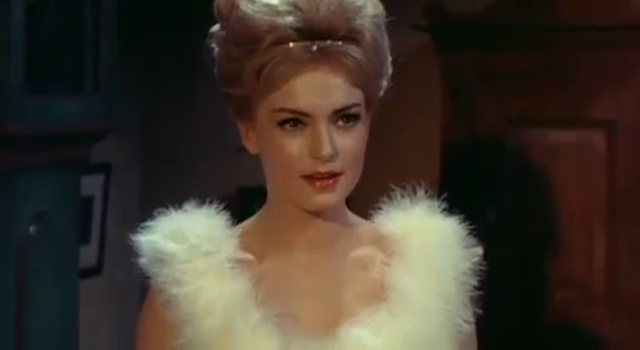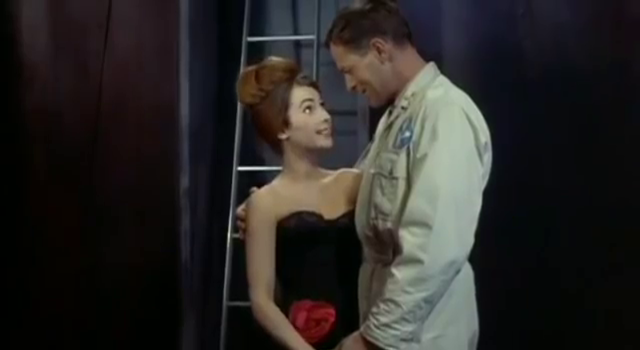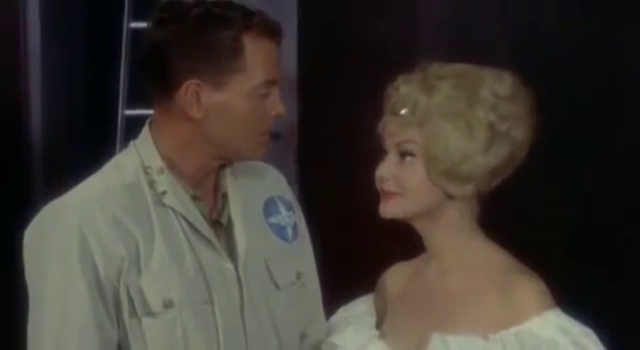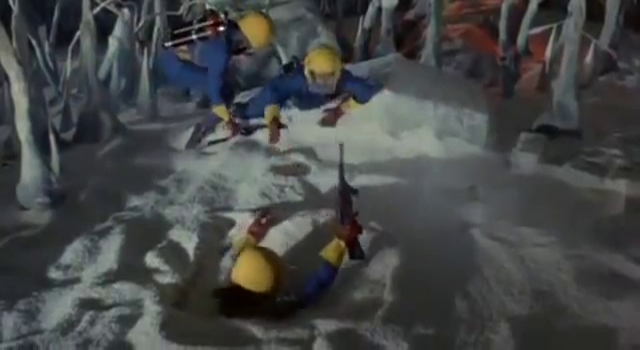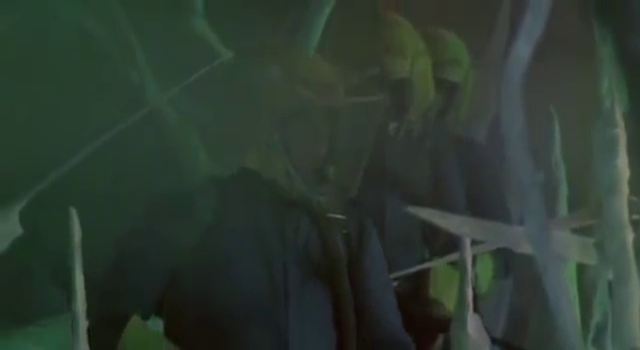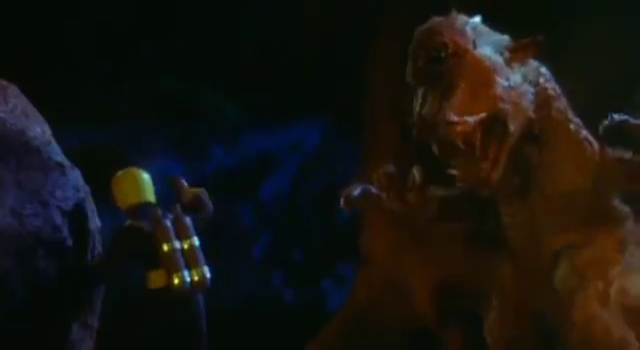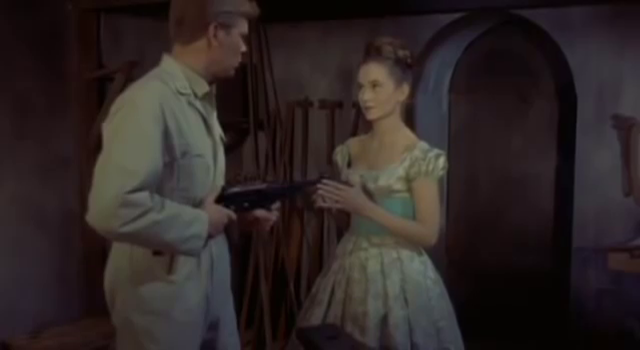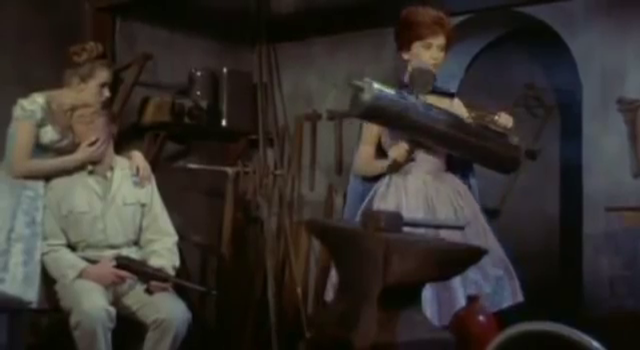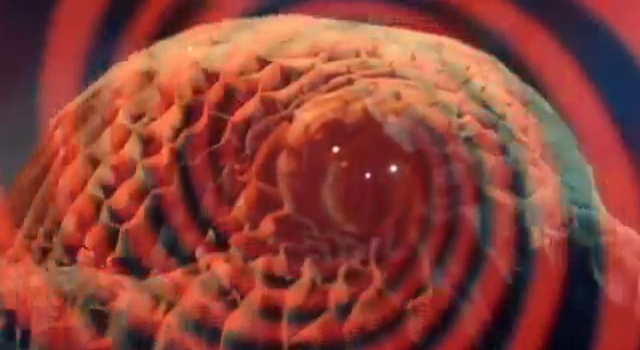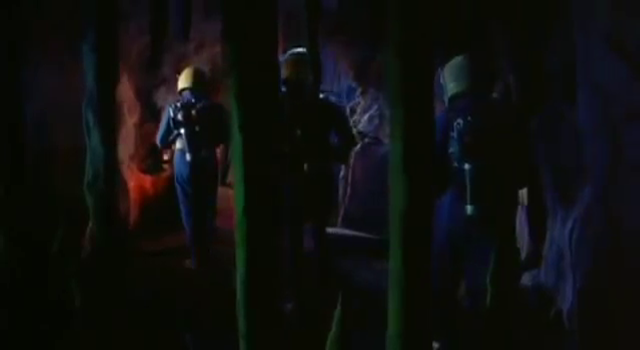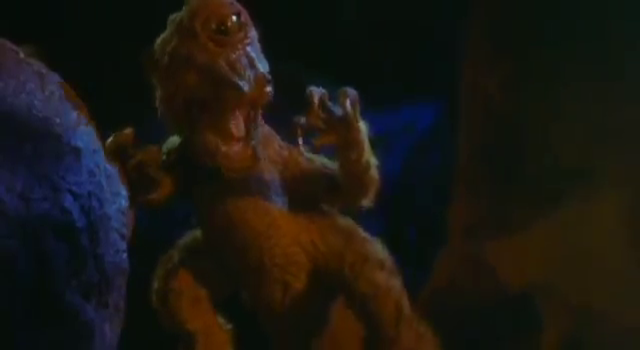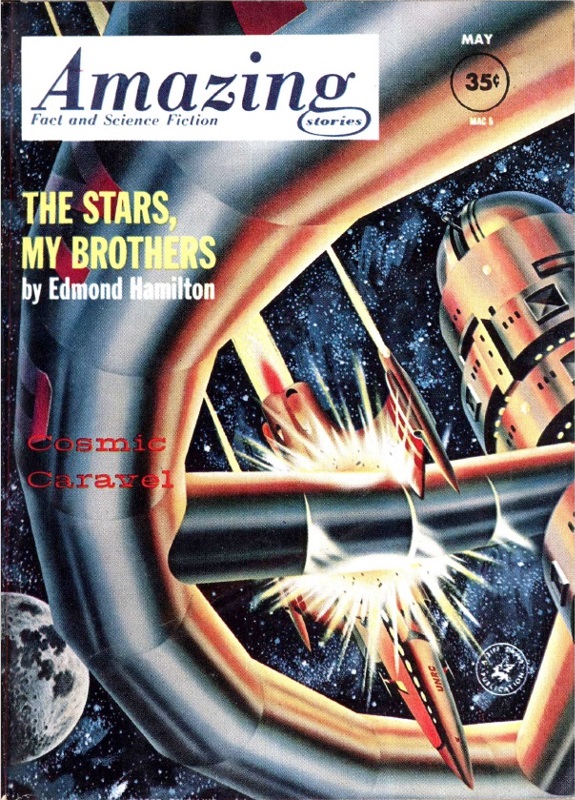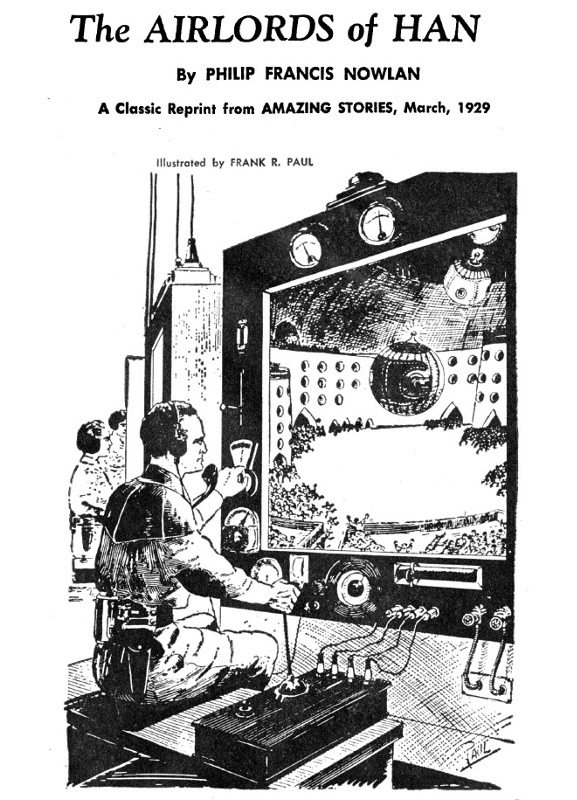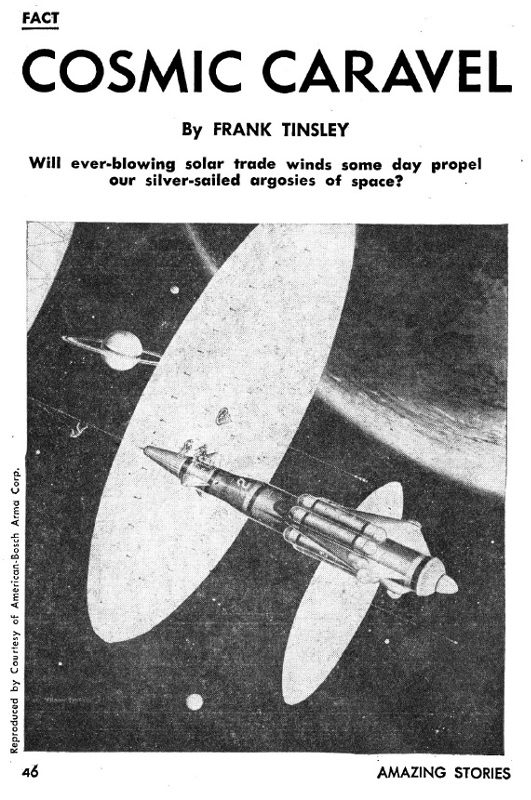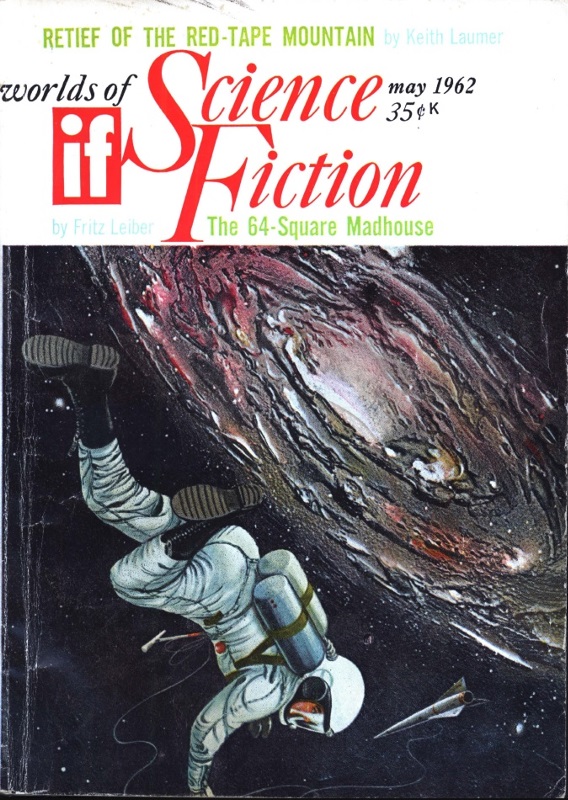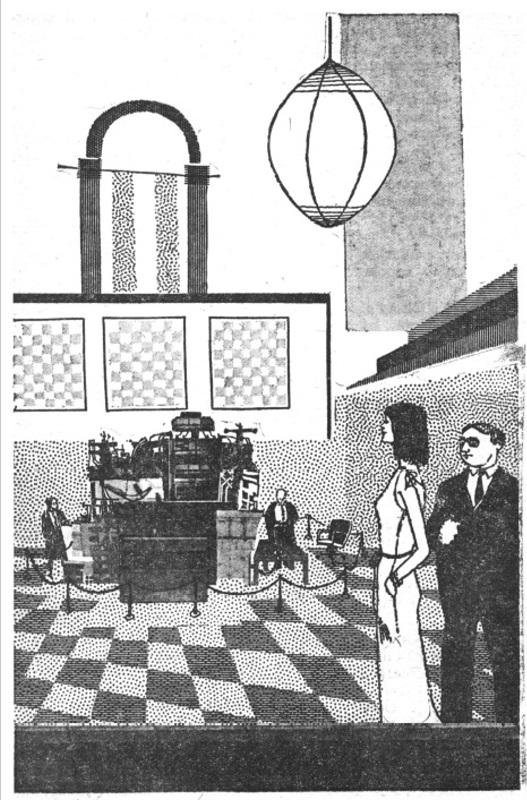
by Gideon Marcus
It's a scary world outside, between Berlin, Cuba, and Laos (not to mention prejudice and hunger right here at home). That's why we turn to fantasy – to distract ourselves. Of course, sometimes the stories we turn to are scarier than our real-world problems. The truly macabre, the horrifying, take some of the edge off our everyday woes.
Since its inception almost three years ago, anthology show The Twilight Zone has been a stunner. Filled with literary merit and some whiz-bang ideas, one could always count on CBS to deliver far out chills every Friday evening. This Third Season of the show hasn't been as good, overall, as the prior two seasons; its creator, Rod Serling, seems to be written out. Nevertheless, even at its worst, The Twilight Zone generally has something to recommend itself. Perhaps after this season is done, Serling will take a well-deserved rejuvenating sabbatical. But then, who will take us from our woes?
Hocus-Pocus and Frisby, by Rod Serling, based on a story by Frederic Louis Fox
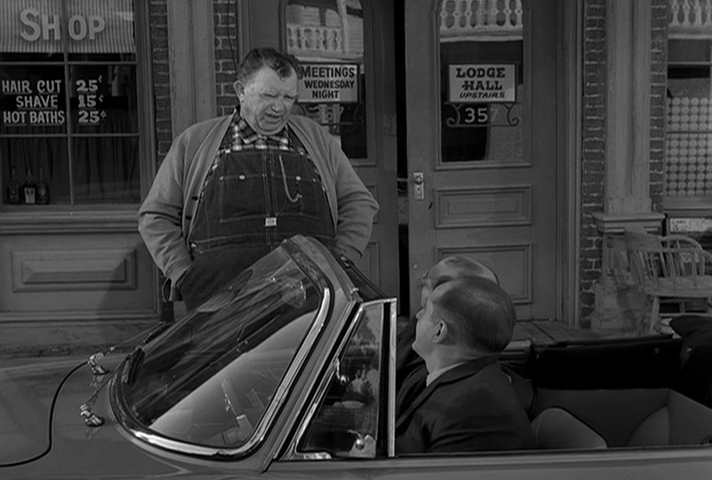
Right off the streets of Mayberry (even to the sharing of at least one of the bit characters), Hocus is the tale of a teller of tall-tales, a shopkeep who cannot refrain from telling the biggest whoppers about himself. Unfortunately for him, a flock of aliens take his claims seriously and make to abscond with him to their home planet, where he can entertain the folks at home with his unparalleled prowess.
It runs a bit long, and there's only so much one can take, but Hocus isn't bad. It's at least fun to watch. Three stars.
The Trade-ins, by Rod Serling
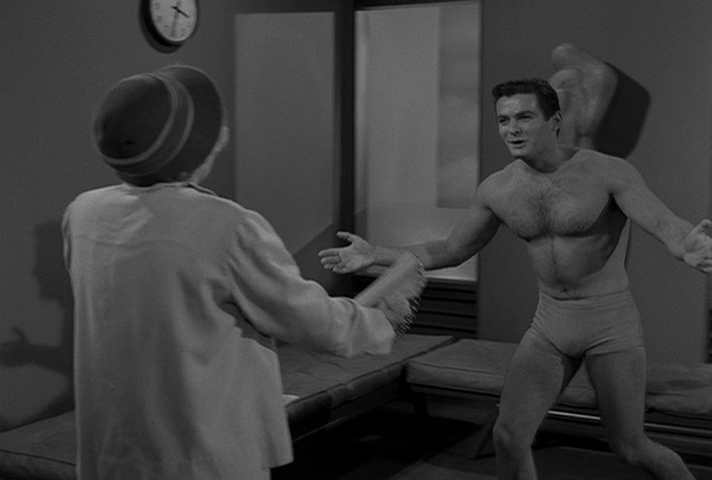
The time is the future. The gimmick is a process that allows the aged to turn in their worn physical vessels in exchange for perfect androids. But when only one member of a devoted old couple can afford the operation, can their relationship survive?
Told like that, I think this story could have been a real winner. An exposé of an utterly changed partnership. Instead, too much time is spent on the prelude; a lot of exposition is blown (though not without an effective piece of acting on the part of the expositioners) in the first act.
The gem of this piece comes at the two-thirds mark, when the husband attempts to double his money in a card game. This 5-minute detour, alone, is worth the price of admission.
All told, a missed opportunity, but not a wasted half hours. Three stars.
The Gift, by Rod Serling
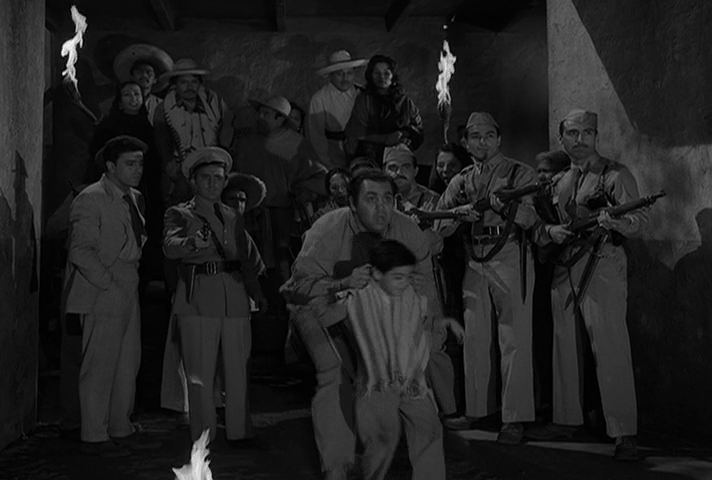
Just over the border, a spaceman crashlanded on Earth, despite his peaceful intentions, receives a chilly reception from the peasant yokels of Mexico. If the Third Season has unexpectedly given us the best episodes of the series, it has now undoubtedly given us the worst. Not only is The Gift an incredibly insensitive portrayal of our neighbors to the South, but the acting is almost universally horrid. Yes, I know that Americans are also skewered on Sterling's show (witness The Monsters are Due on Maple Street and The Shelter, but the brush used to paint the Mexicans in The Gift is broad enough to service a superhighway. Bad script, bad portrayal, one star.
The Dummy, by Rod Serling, based on a story by Lee Polk
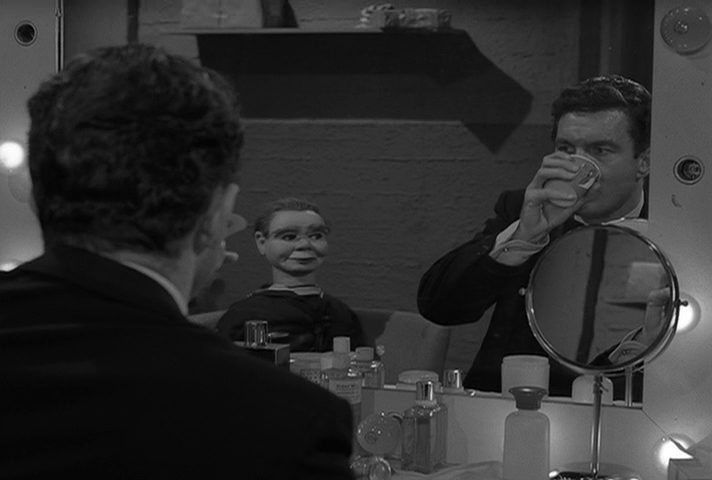
Last up is this fascinating, if opaque, piece on a ventriloquist haunted by the dummy of whom he is supposed to be the master. Cliff Robertson, who we've seen before, does a fine job, as do his cast-mates. But the ending, which seems to imply that the wooden and the living have switched places, is so ambiguous and untelegraphed that it is either a brilliantly subtle twist, or the sign of a writer who doesn't know how to end the story. I give it three stars; you might award more or fewer depending on if you get it better than I do.
***
And now for a look from the younger perspective… The Young Traveler:

by Lorelei Marcus
I can't believe it. We're almost done with Season 3 of Twilight Zone! Only four more episodes to go. Still, that's four weeks from now, so I should probably focus on the episodes we've already watched.
Hocus-Pocus and Frisby, by Rod Serling, based on a story by Frederic Louis Fox
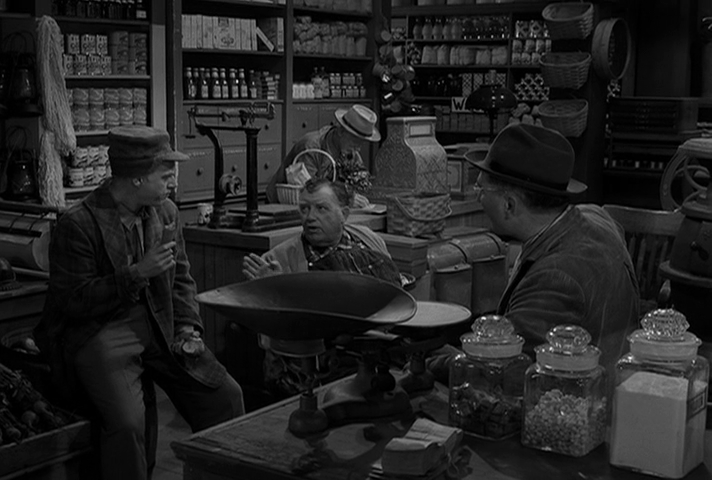
This first episode was fairly predictable from the beginning. It stars this old farmer man named Frisbee, who is either the most talented person in the world…or just the most talented liar in the world. He gets captured by aliens who believe that all of his grand tales are true. He finally escapes by playing his harmonica and running home.
Of course his friends don't believe him when he tells them about the aliens. It was the classic “boy who cried wolf” story, and I think its a good example of how Serling is running out of ideas. I did like the main character Frisbee and his old fashioned general store, as well as his tall tales, but that's really all the episode had going for it. I give it 2.5 stars – the story was unoriginal, but the setting and characters were fun.
The Trade-ins, by Rod Serling
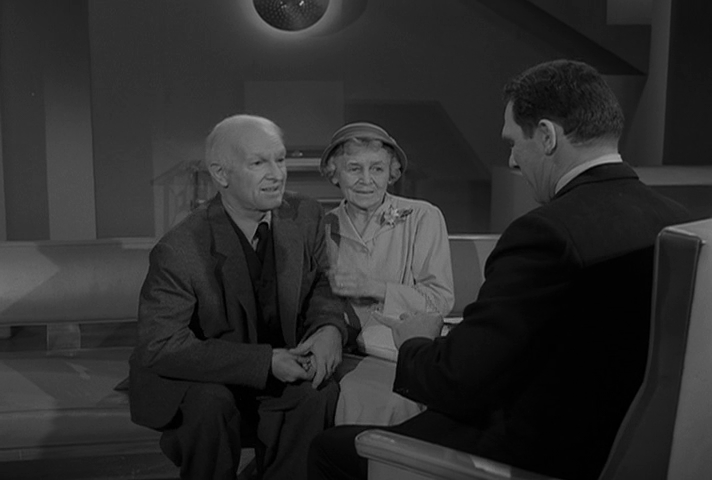
Episode 2 was more original, and bitter sweet. It begins with a sweet old couple going to a company to buy new bodies! The process allows one to transplant one's consciousnesses into the body of a young adult in its prime, letting one live the best of life over again. The couple is very excited and dream about all the things they could do together once they're young again. Unfortunately, the procedure is very expensive, and they can only afford it to be done to one of the two of them.
I don't want to say any more, because I do want you to watch the episode yourself. It's not one of the best Twilight Zone episodes ever, but it is very sweet. I was very worried the episode was going to end tragically, but it also created some suspense, figuring out which path the story was going to take. I give this episode 3 stars; sweet and not too drawn out.
The Gift, by Rod Serling
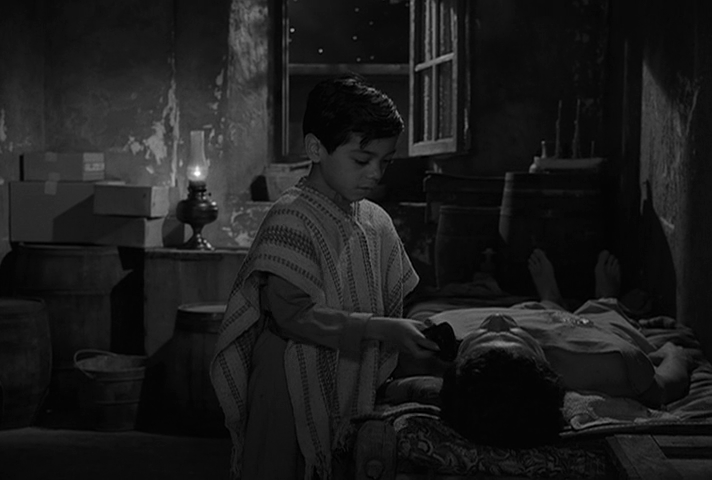
Episode 3 felt very weird to me. It was about an alien(in the form of a white man) who came to a small Mexican town. He was injured and looked at by the town doctor. Along the way he befriends a little Mexican boy. They connect because they both seemed to be outcasts to different degrees. Meanwhile, the town grows increasingly uneasy as one of their officers seemed to have been killed by the strange man/alien. At the climax the man is shot and killed as he tries to give the towns people a gift. Out of fear the townspeople burn part of the gift, which turns out to be the formula for a cure for cancer.
I don't quite know how to explain why this episode was so weird to me, but I'll try to convey it best I can.The pacing was clunky and off, the story confusing, and the acting… Well, let's just say the child actor they chose to play one of the most crucial characters in the story, couldn't act all. I believe this was Serling's attempt at turning the idea of racism and white supremacy on its head, but it didn't turn out that way at all. Instead we got a, “not all strangers are bad” story. I give it 1.5 stars.
The Dummy, by Rod Serling, based on a story by Lee Polk
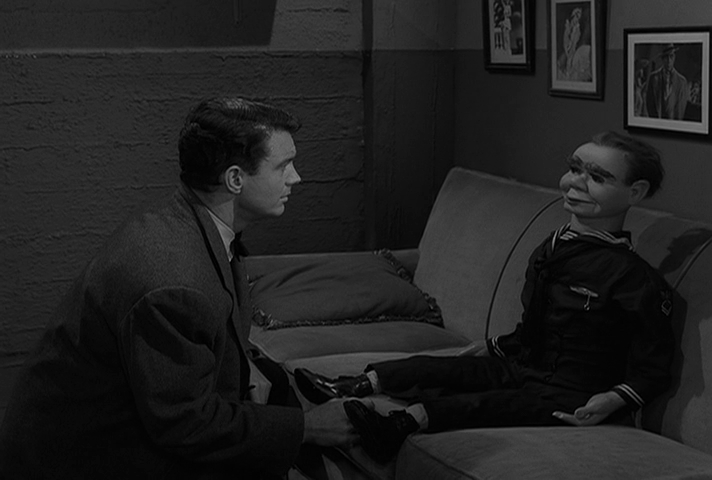
Ah the final episode. This one was suitably weird, but also very confusing. It opens with a ventriloquist's act at a nightclub. My first thought was, “Oh I bet the dummy's going to come to life.” Well, I was right, but as my father pointed out, the dummy being alive was not the twist but the problem. The rest of the episode is the man slowly coming to terms with the fact that the dummy is alive. It haunts him and he becomes more and more distressed until he finally accepts that he put so much of himself in the dummy, that it's now alive. The twist at the end, is the dummy and the ventriloquist have switched places.
I found this incredibly confusing. We kept expecting the story to go somewhere, but it never really did. It was just this man's spiral into the Twilight Zone with a confusing ending. I, personally, believe the dummy being alive was actually all in the man's head, and he'd made himself believe that it wasn't. I would like to know what you think this episode means – we'll attach your ideas to this column. Maybe together we can figure it out. This episode gets 2 stars.
***
Well it was a less than exciting lineup today, but at least there's only four more episodes. Unless it gets renewed for a 4th season, which I'm not so sure it will considering how bad its been. Still, we won't know for a while yet, so I'll see you in 4 weeks!
This is the Young Traveler, signing off.
[Note: It appears that we completely forgot about the…well…forgettable 29th episode of this season. We'll cover it next time. Stay tuned!]
[Note Two (5-10-1964): We never did. That's how unnoteworthy the episode, Four O'Clock was! In short, Theodore Bikel plays an unpleasant crank who threatens to shrink every human being to two feet tall as punishment for humanity's collective evil. Instead, as one might predict, he is, himself, shrunk to that diminutive height as the clock strikes four. This piece, by Rod Serling, is neither surprising nor entertaining. Two stars at best.]








